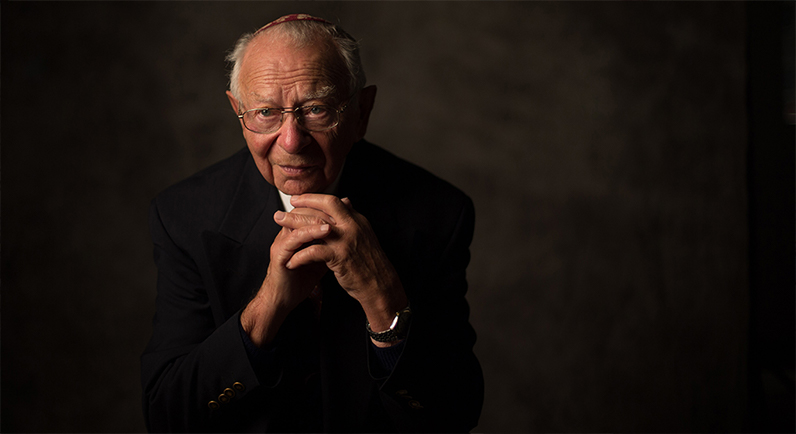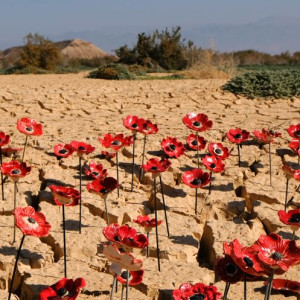Blog
December 3, 2018
Survivor Portraits – Kuba Enoch (1926 – 2021)
This month we introduce Kuba Enoch. Kuba was born in 1926 in Krakow, Poland.
In 1939, when Kuba was 13 years old, Germany invaded Poland. It was at this young age when he began sneaking out of the Jewish district and walking to Krakow markets to trade his family’s belongings and purchase food from nearby farms. Capitalising on his ‘Aryan’ looks and carrying a false identity document, he continued this risky undertaking following the round-up of Jewish families into the Krakow ghetto. Throughout this period, his family remained together; despite the hunger and labour they took solace in the fact they were united.
When the ghetto was liquidated in 1943, Kuba’s younger brother, Ziggy, was separated from Kuba and his family. That destroyed his mother’s will to live. Kuba and his parents were transported to Plaszow concentration camp. Soon after, his mother was relocated to another labour camp and Kuba volunteered to go on the next transport, hoping they would be reunited. Sent first to Ostrowiec, he eventually arrived in Auschwitz-Birkenau. He did not find his mother. To increase his odds of survival, he volunteered as a mechanic and was sent to Auschwitz III, or Buna. As the Allies drew closer to Auschwitz, Kuba was forced on a death march, which took him to Buchenwald where he stayed until liberation. Kuba was amongst 300 young survivors taken by the Red Cross to recover in Switzerland.

In 1948 he arrived in Australia to begin his new life. Reflecting on the past did not dull his optimism or his humanity. With four children and eleven grandchildren, he asked only that life is well lived, in remembrance of those who were denied such a privilege:
“They tried to eradicate all the Jewish people in Europe… We stand here today as proud Jews. Hitler did not win. We will continue to flourish.”
Kuba’s last personal belonging of his pre-war life was a watch, gifted to him by his parents for his Bar Mitzvah. It was taken away from him on arrival in Auschwitz. In one fleeting moment, he was stripped of the tangible link to his family and his faith.
To read more from our Survivor Portraits blog series, click here.
To explore the personal stories and anecdotes of Holocaust survivors, click here for our first online exhibition.
Kuba’s story is featured in the book We Are Here: Talking with Australia’s Oldest Holocaust Survivors. To purchase a copy of the book, click here.
Photograph by Katherine Griffiths.






What’s On Newsletter
Keep up to date on all Museum events and exhibitions.